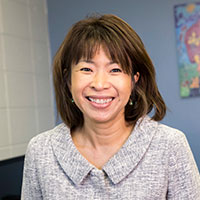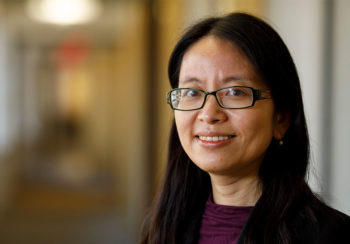The American health care system has been called many things, but “simple” isn’t usually one of them.
At the University of Georgia, Bernadette Heckman is tackling one of the most complicated aspects of the health care industry: inequality in care and treatment. The associate professor of counseling psychology first noticed disparities in access to care during her work in clinical settings.
As her clientele became more diverse, she realized that most academic literature on chronic pain focused on majority populations, with little insight into groups who are often socially and economically marginalized and underserved. And those groups were the ones disproportionately suffering from chronic pain, headaches, HIV/AIDS and other challenging health conditions.
They’re also the least likely to get treatment for their health problems.
“I was already interested in multiculturalism and social justice,” Heckman says. “When I began my research, I started identifying disparities in headache treatment and outcomes and realized this was an overlooked area of research.”
Heckman began working with chronic migraine patients, meaning they experienced severe headaches 15 days or more per month. She discovered that not only were African Americans having more frequent headaches than their white American counterparts, but they were also more highly disabled by their headaches and less likely to stay in treatment.
“As a university, we value a multicultural sense of justice and diversity in our student population. It’s our duty to serve the needs of the state and to eliminate inequities in health care.”
– Bernadette Heckman, Associate Professor, College of Education
“Many communities are having to deal with higher rates of diseases and poorer access to treatment because of these inequalities,” says Heckman. “As policies change and we think about health care differently, we can start to identify more barriers as well as psychosocial and social and ecological factors that might promote health and reduce health disparities.”
One of the first steps to address some of these inequalities is to expand access to care, so Heckman and her team are working with UGA’s College of Public Health and the Georgia Department of Public Health to implement teletherapy in Georgia counties designated as health professional shortage areas.
Currently, Heckman’s efforts are devoted primarily to developing culturally contextualized interventions and training a culturally sensitive behavioral health workforce to deliver evidence-based behavioral health services to reduce health disparities. In 2014, she received a $1.3 million dollar grant from the Health Resources and Services Administration (HRSA) to increase the size of Georgia’s behavioral health workforce in K-12 schools throughout 13 counties in Georgia.
Her group’s two-pronged approach—conducting rigorous health disparities research coupled with workforce development—is the most efficient and time-sensitive way to address health disparities in Georgia and the country as a whole.
Heckman and her research team were also recently awarded a $1.9 million dollar HRSA grant to grow the behavioral health workforce in schools and community-based health care settings throughout the state. Heckman believes her group’s two-pronged approach—conducting rigorous health disparities research coupled with workforce development—is the most efficient and time-sensitive way to address health disparities in Georgia and the country as a whole.
Ultimately, she hopes her efforts will help eliminate inequities in treatment across all racial and ethnic groups, geographic boundaries and sexual and gender identities.
And for Heckman, it’s critical that University of Georgia be at the forefront of this research.
“We’re in a very racially, economically and geographically diverse state,” she says. “As a university, we value a multicultural sense of justice and diversity in our student population. It’s our duty to serve the needs of the state and to eliminate inequities in health care.”

About the Researcher
Bernadette Heckman
Associate Professor and Director of Clinical Training
Counseling and Human Development Services
College of Education





